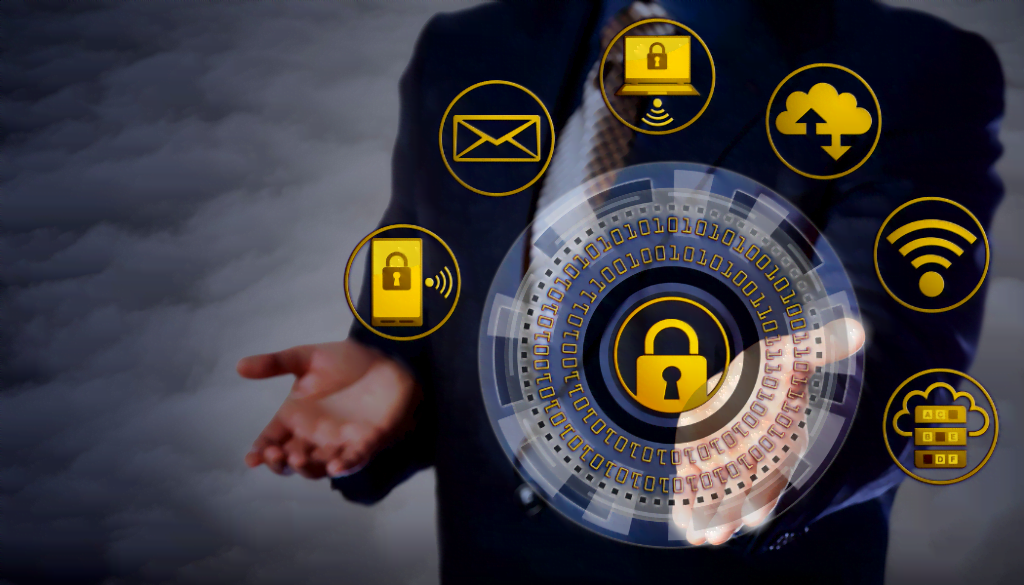As technology continues to evolve, more and more activities are being moved online. This is especially true in business. Cloud-based technologies have offered companies the ability to be nimbler and more flexible. Now people can collaborate remotely on almost anything. It can be an amazing thing, but it does come with a downside.
If it’s online, it is vulnerable to cyberattacks. Security breaches, data theft, viruses, etc. are all on the rise as more and more companies move things online.
According to Cisco, cybersecurity is the practice of protecting systems, networks, and programs from digital or cyber-attacks. These cyber-attacks often attempt to access, change, or destroy sensitive information or otherwise interrupt business.
Cybersecurity is a top priority here at HireEffect. We are continuously looking for new and better ways to protect our customer’s private information.
There are steps you can take to reduce your vulnerability, but it isn’t always as simple as restricting the use of business devices. As more things get moved to the cloud, you may need to up your game to keep your business safe. You may already have security practices in place, but they may not be enough.
Finding the vulnerabilities
The last thing you want is for someone to breach your system and destroy, expose, or compromise your data. There are several ways for someone to gain unauthorized access to your system. Take a look at these and consider security practices you can put in place to prevent them.
Phishing is when someone emails you asking for personal information like your usernames, passwords, and credit card numbers. They look like they are coming from a source you would trust, like Microsoft. That said, they are probably asking questions that the source would never ask via email. When in doubt, don’t respond. Don’t give them any information until you have verified they are who they say they are.
Also, don’t click any links they sent you. If you open something from an illegitimate source, you can introduce malware into your network. Malware is software that is specifically designed to disrupt, damage, or gain unauthorized access to a computer system. It can ruin everyone’s day.
Computer viruses, like actual viruses, attach malicious code to clean code to sneak their way into your system.
Worms spread through your network from a single computer, connecting to others and spreading their infection.
Spyware is sneaky because it hides in the background collecting information. You may not know it is there until it is too late.
Trojans act like their namesake. They pretend to be real software while creating a backdoor into your system. That makes it easier for other malware to get in.
Ransomeware/scareware will lock down your network and hold it hostage. That can get very pricey but paying the ransom may be the only way to get your data back.

Tools for your security practices
Look at your systems
It also helps to keep your software up to date. Older systems are easier to hack, which is bad if you don’t have a robust IT department to deal with them. This includes outdated or unpatched operating systems, software applications, browsers, firmware and middleware, and anti-virus software. Keeping those systems up to date will decrease your vulnerability to attacks.
The next thing to look at is your passwords. Are they complex and unique? What does your password security look like?
At HireEffect, we use LastPass to keep our passwords protected. It comes with its own high-level security that keeps our information safe. Not only does it allow us to generate and store passwords, but it also gives us a safe way to share that information. No more having to send someone your password. You can share it with their account via your password manager. This allows them access without them personally knowing your password. They just need to make an account with the password manager.
Additional steps
On top of keeping your systems up to date and your passwords safe, you should enable multi-factor authentication. This can feel like an annoying extra step, but it makes it harder for someone who is not you to log into your accounts. We strongly encourage this with our clients, on top of firewalls, anti-malware, and secure data storage.
It is better to err on the side of caution than have something happen to your data.
We talk a lot about how using automation tools makes your business more efficient. Given that these applications deal with large amounts of personal and financial information, they have to be secure. You can usually find information on their websites about the type and level of security that they offer.
Automation also ensures that your data is more accurate while also making it more difficult for someone to commit fraud.
Security practices beyond the tools
Sign the right paperwork
A Nondisclosure Agreement (NDA) or Confidentiality Agreements is a legal contract or part of a contract between at least two parties that outlines confidential material, knowledge, or information that the parties wish to share with one another for certain purposes but wish to restrict access to. It is there to protect both yourself and your client when it comes to working with sensitive information. This is helpful if you are working with someone on a product launch or if the project deals with sensitive information. It protects both parties and ensures information will not be shared outside of the team.
Having a legally binding agreement in place protects everyone.
Some other tips:
- Don’t use public Wi-Fi. Using the mobile hotspot feature on your phone is safer.
- Limit the use of USB thumb drives. Use secure digital portals/secure email instead.
- Mandate employee cybersecurity training.
- Review and update your IT and security policies in areas such as remote work, bring your device (BYOD), internet access, and other vulnerable areas.
- Get cyber insurance to reimburse your business if your systems are breached.
It helps to have a plan in place in the case that something goes wrong. That way you can react quickly and hopefully recover more effectively.
This is just an example of some security practices you can put into place today in your life and your business. We take security seriously here at HireEffect and you should too. Your business is important and it is worth protecting.
How we can help:
We provide customized, outsourced solutions for bookkeeping, payroll, recruiting & talent acquisition, HR & talent management services that go beyond compliance. We also operate with a level of security that makes us HIPAA compliant, a claim most businesses cannot make. Our ultimate objective is to help your business grow by getting you out of the back office and giving you the freedom to focus on customer-facing, revenue-generating activities, and strategic business growth. Contact us today.

